And when will we ever have religious tolerance?
The other day, I read an article shared on Facebook by my friend Derek, an active member of the Skeptic community who is mostly known for his fight against the anti-vaccine movement. Although Derek has been sharing tons of articles about vaccines and the harm currently being done by the anti-vax movement these days — after all, measles is on the rise because of parents opting out of the MMR vaccine for their kids — this particular article was about the role of religion in child rearing. Titled “Godless Parents are Doing a Better Job,” it summarized information in an Los Angeles Times Op-Ed piece titled “How Secular Family Values Stack Up.” That, in turn, summarized the findings of several polls and studies.
Because so many people seem to think that atheists and non-believers in general — the so-called “nones” — are amoral and likely evil, it was good to see an article that confirmed my thoughts on the subject: that belief in a God has no bearing on a person’s morals. I shared the article on my Facebook timeline with the following description:
Takeaway quote: “Parents who raise their kids without religion are doing just fine, studies say, possibly even better. Overall, not believing in God seems to make people and their offspring more tolerant. Less racist. Less sexist. Enviro-friendly. And their kids care less about what’s cool, which—say it with me—only makes them cooler.” That last bit also makes them more practical and more likely to live within their means — something that has made a huge difference in my life and my ability to be and stay happy.
My post got a modest two “likes” and, more surprisingly, two “shares.” One of the shares was by my friend Barbara, who used the description:
An interesting article, sure to stir up lots of discussion. And I would love to know more about each individual study. For me, the take home is that a strong moral foundation, no matter what you call it, is the key to successful parenting.
Clearly, Barbara drew a similar conclusion to what I did, although she did hint at skepticism by saying she wanted to know more about the studies.
Sadly, Barbara’s Facebook friends weren’t quite as open-minded about the piece. Most of them latched on to the unfortunate lede of the article:
Hate to break it to you, Bible thumpers: Parents who raise their kids without religion are doing just fine, studies say, possibly even better.
Ouch. Apparently, believers don’t like the phrase “Bible thumpers.” Although the author was trying to be cute, all she (not he, as those who claimed to read the piece referred to her — I guess there are some men named Tracy, although their profile pics don’t usually show a woman holding a small child) managed to do was alienate anyone who dislikes that trite descriptor. I suspect that most stopped reading there, because their comments were more about the author’s bias than what came after that first sentence.
I see a lot of that. People who simply switch off their brains when they get to a word or phrase they don’t like. It makes it tough for writers to get what they want to say out if they have to worry about a choice of words offending a particular part of their audience.
(I suspect that the title of this post will have the same affect. How many people will comment without bothering to read it? Read the comments and figure it out for yourself.)
I attempted to comment about this from the point of view of a non-believer:
I agree totally with Barbara when she says that a strong moral foundation is necessary. But I do not believe that God or any religion is necessary for that moral foundation.
This particular website tends to present articles with a very definite slant — likely to fire up emotions and get hits — but if the conclusions presented here are backed up by real studies, the presentation tone is beside the point.
I also do not see how she is singling out Christians in any way. And doesn’t really make a difference that there are more people who believe in God than people who don’t? The “nones” are a growing segment of our society. When faced with the choice of a country run by politicians who want to insert religion instead of science in our schools, I’ll vote for a “none” any day.
I then took it a step farther:
As you’ve probably guessed from my comments, I am a non-believer. But I was raised as a Catholic including regular attendance at Sunday school until after Confirmation. Still, I don’t think I ever really believed that there was a higher power in control of the show down here on earth.
About those studies…I’ve had time to do some searching. Here’s some reading material for those of you who think atheists are amoral. Educate yourself:
“Religion Doesn’t Make People More Moral, Study Finds,” livescience, September 2014.
“Atheists More Motivated by Compassion than the Faithful,” livescience, May 2014.
“Study Reveals Atheists Are MORE Compassionate And Generous Than Highly Religious People,” Addicting Info, May 2012
“Highly religious people are less motivated by compassion than are non-believers,” UC Berkeley Newscenter, April 2012.
“Atheists ‘just as ethical as churchgoers’,” The Telegraph, February 2010
Believers seem to think that without belief in a God to punish us for our “sins,” people will have no moral foundation for life. Studies have shown that this is not true. And no, unfortunately I cannot provide links to such studies at this moment. As a nonbeliever, I think it’s sad that people need to live in fear of punishment by God to simply do the right thing. I don’t need a list of Commandments to tell me what’s right or what’s wrong. It was not me, the atheist, who committed adultery – it was my believer husband who did so. It was not me, the atheist, who stole and misused funds given to me by people who trusted me – it was more than a few televangelists preaching the word of their God.
It’s the hypocrisy of believers — not all of them, I hope — that makes me angry. Yet I’m still very tolerant. As far as I’m concerned, people can believe whatever they want, as long as their beliefs do not harm others. Sadly, very few believers are tolerant of people like me who do not share their beliefs. Tell me: who’s on a higher moral ground?
I was ignored. The comments continued to revolve around the bias of the author, continuously referring to her as “he.” They were clearly made by people who had not bothered to read the entire piece or the piece it was based on. Instead, they took offense at “Bible thumper” and focused their angry comments on that.
Finally, I commented:
As usual, everyone misses the point.
And that’s when the attack turned on me. Someone said:
The point you’ve missed, Maria L, is that if you believe in God, it’s about love, not punishment.
It’s about love?
God is Love?
 I remember “God is love” from Sunday school. In fact, it’s the only thing that sticks with me all these years later. I’d like to think that they tried to teach us more than that simple phrase, but, in all honesty, that’s all I remember. It’s almost as if it was pounded into our heads.
I remember “God is love” from Sunday school. In fact, it’s the only thing that sticks with me all these years later. I’d like to think that they tried to teach us more than that simple phrase, but, in all honesty, that’s all I remember. It’s almost as if it was pounded into our heads.
Heck, I don’t even remember any Bible stories being taught.
But even back then, “God is love” was meaningless to me. And as I sit here, I still can’t imagine what this is supposed to mean.
And if a belief in God is “about love,” then why do religious folks bring moral standards into the argument all the time? Why do they say atheists are amoral? Love and moral values are two different things.
Aren’t they?
Seems to me that the person who responded to my last comment was just regurgitating the same nonsense they pounded into our heads in Catholic Sunday school. It didn’t make sense to me then and it doesn’t make sense to me now.
In fact, given the history of the world, God seems to represent just the opposite: a reason to hate.
God and Hate
Try — if you can — to look objectively at the role of religion in current and past conflicts.
Nowadays, the big problem is terrorism by radicalized Muslims who believe that the world should be run according to strict adherence to Sharia Law. This set of laws is painfully outdated and ill-suited for today’s world. (Yes, that’s my opinion. Read the law objectively before you tell me you don’t agree.) Worse than that is the simple fact that since it is based on the Qur’an and Hadith — which have no bearing on non-Muslims — there’s no chance that it could ever be adopted by the entire world.
Yet there’s rampant hate, murder, and terrorist acts by these radicalized Muslims who claim that they are acting on the will of Allah — their name for God.
(Or is it a different God? I’ve never been able to figure that out.)
But it’s not just Muslims committing atrocities in the name of God. You don’t have to look back very far to see radicalized Christians bombing abortion clinics and killing doctors because of their beliefs. Heck, Wikipedia has a whole page dedicated to information about anti-abortion violence. Is this any different from Muslim terrorism?
And what about the Westboro Baptist Church‘s unsavory practice of picketing funerals — including the school children murdered at Sandy Hook Elementary School and those killed at the Boston Marathon bombing — to somehow protest gay rights. (Yeah, I don’t get the connection, either.)
You want some more information about Christians behaving badly? Check out Wikipedia’s Christian Terrorism page. (I didn’t even know there was such a thing until I started researching for this blog post.)
Hateful acts perpetrated in the name of God isn’t a recent thing, either. Look back in history and you’ll find the Salem Witch Trials, the Spanish Inquisition, and the Crusades. These are just three examples off the top of my head. I could spend all day searching for, reading about, and linking to other examples.
By why bother? I think I’ve made my point.
Non-Believers as Targets for Hate
I guess what bothers me most is how many people simply hate non-believers. I’m not sure why that is. If God is love, then surely that love should help believers tolerate the different viewpoints of others. After all, what is love?
Wikipedia defines love as:
Love is a variety of different feelings, states, and attitudes that ranges from interpersonal affection (“I love my mother”) to pleasure (“I loved that meal”). It can refer to an emotion of a strong attraction and personal attachment. It can also be a virtue representing human kindness, compassion, and affection—”the unselfish loyal and benevolent concern for the good of another”. It may also describe compassionate and affectionate actions towards other humans, one’s self or animals.
Yep, I added the emphasis.
If this is love and God is love then why are so many who claim to believe in God so full of hate?
Why can I, as a non-believer, have tolerance for religious belief systems when believers can’t have tolerance for mine?
Back to the Study Results
The article I should have linked to, the one without the offensive “Bible banger” phrase, is the one in the LA Times. If you haven’t read it, go do it now. It’s short and I promise it won’t offend you, no matter what you believe (or don’t believe).
It presents some conclusions that I find both confirming and reassuring. Because I know that most of you won’t bother to read it, I’ve shared a bit of it here:
For secular people, morality is predicated on one simple principle: empathetic reciprocity, widely known as the Golden Rule. Treating other people as you would like to be treated. It is an ancient, universal ethical imperative. And it requires no supernatural beliefs. As one atheist mom who wanted to be identified only as Debbie told me: “The way we teach them what is right and what is wrong is by trying to instill a sense of empathy … how other people feel. You know, just trying to give them that sense of what it’s like to be on the other end of their actions. And I don’t see any need for God in that. …
“If your morality is all tied in with God,” she continued, “what if you at some point start to question the existence of God? Does that mean your moral sense suddenly crumbles? The way we are teaching our children … no matter what they choose to believe later in life, even if they become religious or whatever, they are still going to have that system.”
The results of such secular child-rearing are encouraging. Studies have found that secular teenagers are far less likely to care what the “cool kids” think, or express a need to fit in with them, than their religious peers. When these teens mature into “godless” adults, they exhibit less racism than their religious counterparts, according to a 2010 Duke University study. Many psychological studies show that secular grownups tend to be less vengeful, less nationalistic, less militaristic, less authoritarian and more tolerant, on average, than religious adults.
Aren’t those all good qualities we want in our children and adults?
And look, Ma, no God!
Comments
Go to it. I know you have something to say.
I suspect this post will make the rounds of the religious websites, which will use it to show how evil atheists are. Whatever. It’s the same old, same old to me. I’ll just let those comments stand as they come in. I’m sure a good percentage of them will reinforce the truth of what I’ve written here.
I could remind commenters to read the entire post before commenting but most people can’t be bothered. The kinds of commenters who have nasty, hateful things to say don’t have time to actually read what they’re commenting on. They have lots of other sites to visit to spread their hate. It’s more efficient for them to zero in on a post title or sentence or phrase and comment on that.
But I also welcome comments by others who agree with what I’ve said — especially from those who can help me understand why this problem exists and what we can do about it — without pretending to believe something we don’t.
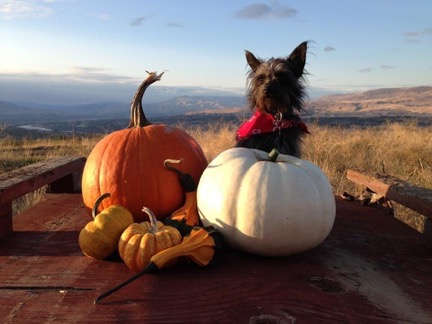
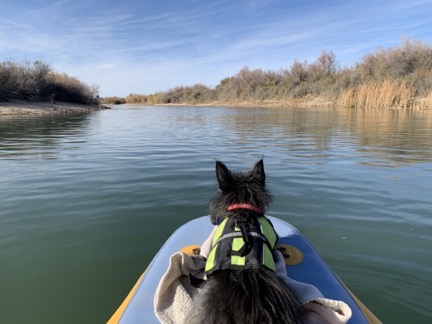



 I remember “God is love” from Sunday school. In fact, it’s the only thing that sticks with me all these years later. I’d like to think that they tried to teach us more than that simple phrase, but, in all honesty, that’s all I remember. It’s almost as if it was pounded into our heads.
I remember “God is love” from Sunday school. In fact, it’s the only thing that sticks with me all these years later. I’d like to think that they tried to teach us more than that simple phrase, but, in all honesty, that’s all I remember. It’s almost as if it was pounded into our heads.
